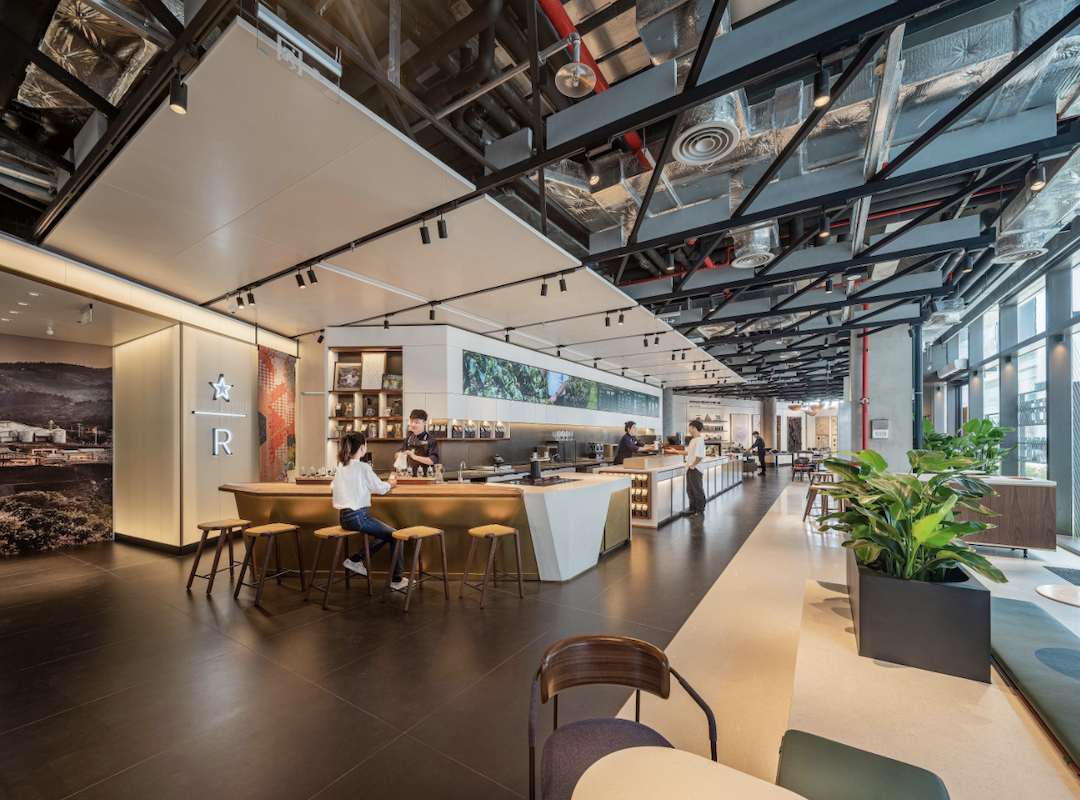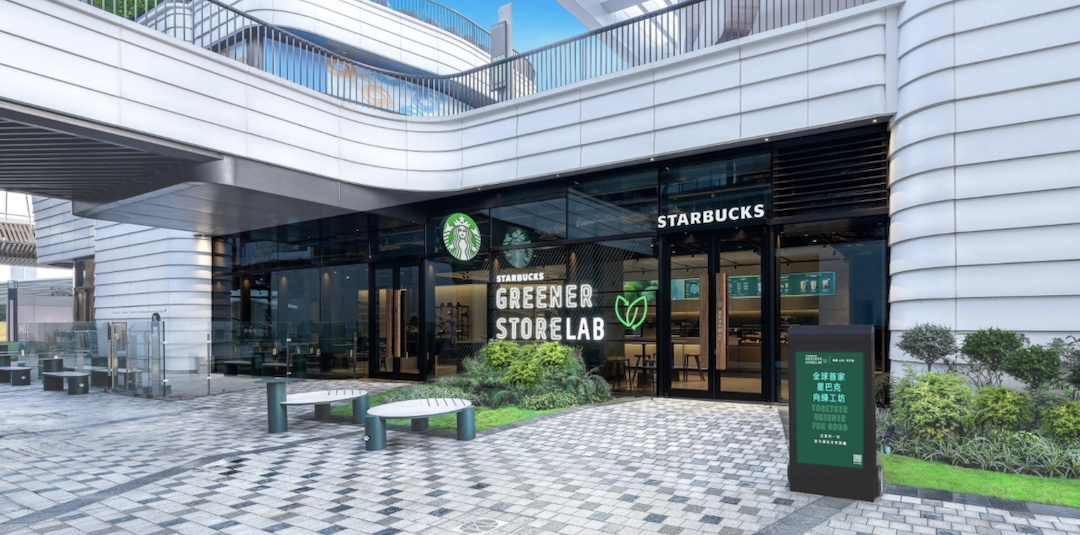The Shanghai Starbucks Greener Store Lab is a new concept that serves as a lab focused on circularity, meaning the elimination of waste in both store construction and operations.
The project team set a goal of ensuring that approximately 50% of the building materials could be recycled or biodegraded at the end of the store’s life. Working with the RESET Materials Standard as the framework for quantification and auditing, the project team achieved this 50% goal. Circularity strategies included the creation of a modular bar and back-of-house system that can be easily dismantled and reassembled.

Waste audits were conducted within current Starbucks Reserve Stores to quantify the success rate of the existing waste sorting program. The audits identified opportunities to optimize results via design, such as guiding users to better separate waste into organics, recyclables, and residuals. Other circularity initiatives include affordable reusable cups and Starbucks green aprons made from recycled PET bottles via advanced plastic-to-textile technologies.
Smart Internet of Things technologies are used to better manage air conditioning and lighting, reducing carbon emissions from operations by around 15% compared to a regular Starbucks store of the same size. The store is also the first Starbucks on the Chinese mainland to be powered by renewable energy purchased through a nationally certified platform.
Related Stories
| Aug 11, 2010
29 Great Solutions for the AEC Industry
AEC firms are hotbeds of invention and innovation to meet client needs in today's highly competitive environment. The editors of Building Design+Construction are pleased to present 29 "Great Solutions" to some of the most complex problems and issues facing Building Teams today. Our solutions cover eight key areas: Design, BIM + IT, Collaboration, Healthcare, Products, Technology, Business Management, and Green Building.
| Aug 11, 2010
Walmart establishes sustainable product index to evaluate 'greeness' of products
Walmart today announced plans to develop a worldwide sustainable product index during a meeting with 1,500 of its suppliers, associates and sustainability leaders at its home office. The index will establish a single source of data for evaluating the sustainability of products.
| Aug 11, 2010
9 rooftop photovoltaic installation tips
The popularity of rooftop photovoltaic (PV) panels has exploded during the past decade as Building Teams look to maximize building energy efficiency, implement renewable energy measures, and achieve green building certification for their projects. However, installing rooftop PV systems—rack-mounted, roof-bearing, or fully integrated systems—requires careful consideration to avoid damaging the roof system.
| Aug 11, 2010
USGBC’s Greenbuild 2009 brings global ideas to local main streets
Save the planet with indigenous knowledge. Make permanent water part of your life. Dive deep water for clues to environmental success. Connect site selection to successful creative concepting. Explore the unknown with Discovery Channel’s best known guide. These are but a few of the big ideas participants can connect to at USGBC’s Greenbuild International Conference and Expo, taking place on November 11-13, 2009 in Phoenix, Ariz.
| Aug 11, 2010
Toronto mandates green roofs
The city of Toronto late last month passed a new green roof by-law that consists of a green roof construction standard and a mandatory requirement for green roofs on all classes of new buildings. The by-law requires up to 50% green roof coverage on multi-unit residential dwellings over six stories, schools, nonprofit housing, and commercial and industrial buildings.
| Aug 11, 2010
Great Solutions: Products
14. Mod Pod A Nod to Flex Biz Designed by the British firm Tate + Hindle, the OfficePOD is a flexible office space that can be installed, well, just about anywhere, indoors or out. The self-contained modular units measure about seven feet square and are designed to serve as dedicated space for employees who work from home or other remote locations.







